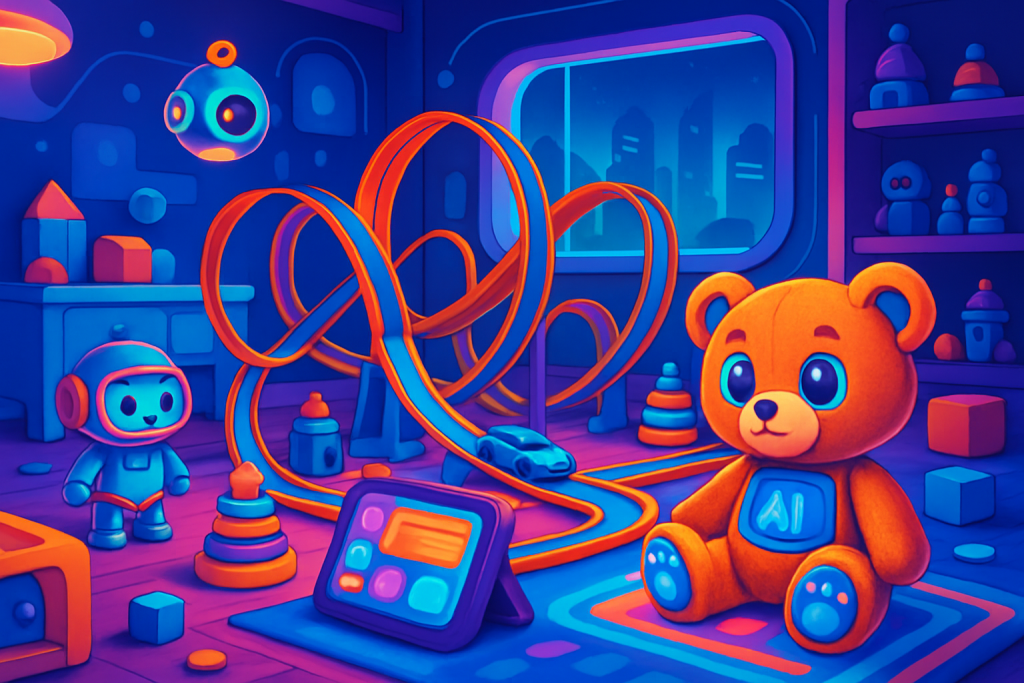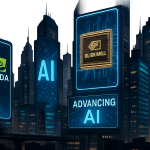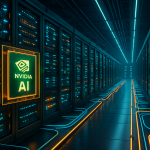Remember those Choose Your Own Adventure books? The thrill of making a decision that genuinely altered the storyline? Well, get ready, because Mattel, the titan of toys that brought us Barbie, Hot Wheels, and enough Uno decks to wallpaper a small country, is about to inject that level of interactivity into playtime, but this time, with AI. The company just announced a major partnership with OpenAI, the folks behind the GPT magic, and the implications are, frankly, mind-blowing.
The goal? To create AI-powered toys and games that are more engaging, more personalized, and, dare we say, more… alive? The first fruits of this partnership are expected to hit shelves later this year. Forget Furby; we’re talking potentially sentient stuffed animals. Okay, maybe not sentient, but certainly a whole lot smarter than your average teddy bear.
But before we dive headfirst into a world where Barbie can hold an intelligent conversation about the socio-economic implications of fast fashion (imagine the possibilities!), let’s rewind a bit. Mattel, like many legacy companies, hasn’t exactly had a smooth ride in recent years. We’re talking about a company that has to compete with not just other toymakers, but also screens, apps, and the siren song of TikTok. Economic headwinds, partially fueled by the ongoing U.S. trade situation, haven’t helped either. So, how does a company that’s been around since 1945 stay relevant in a world that moves at the speed of light? You guessed it: AI.
This isn’t Mattel’s first foray into the digital realm. They’ve been aggressively expanding their entertainment division, churning out movies, TV shows, and mobile games. Think of the recent Barbie movie juggernaut. But this partnership with OpenAI? This is a whole new level. It’s like strapping a rocket booster to a classic car. You’re still driving a familiar vehicle, but now you’re going warp speed.
So, What Does This Actually Mean?
Let’s break down the nitty-gritty. Mattel plans to integrate OpenAI’s advanced AI tools, including ChatGPT Enterprise, into its toys and games. The idea is to create interactive experiences that adapt to each child’s individual play style. Imagine a Hot Wheels AI that learns your favorite track configurations and suggests new challenges, or an Uno deck that subtly adjusts the rules to keep the game interesting. It’s not just about adding bells and whistles; it’s about creating a truly personalized play experience.
According to Brad Lightcap, OpenAI’s COO, this partnership has the potential for “company-wide transformation.” That’s CEO-speak for “we’re betting the farm on this.” And it’s not hard to see why. If Mattel can successfully integrate AI into its products, it could completely redefine the toy industry, setting a new standard for interactive and educational play.
The Ethical Elephant in the Room
Of course, any discussion about AI, especially when it involves children, has to address the ethical considerations. Privacy, safety, and the potential for bias are all major concerns. Mattel is keenly aware of this, and they’ve emphasized their commitment to adhering to strict safety standards. But let’s be honest, it’s a complex issue. How do you ensure that an AI-powered toy isn’t collecting data on your child without your knowledge? How do you prevent it from reinforcing harmful stereotypes? These are questions that Mattel, and the industry as a whole, will need to grapple with as AI becomes more prevalent in our lives.
We’ve seen this dance before, haven’t we? Remember the early days of the internet, when everyone was clamoring for regulation but no one quite knew how to do it? AI is entering that same messy adolescence. There will be growing pains, missteps, and probably a few awkward phases along the way. But the potential benefits are too significant to ignore.
The Bottom Line: Toys are About to Get a Whole Lot Smarter
Mattel’s partnership with OpenAI is more than just a business deal; it’s a sign of the times. It reflects the growing influence of AI across all industries, from healthcare to finance to, yes, even toys. For Mattel, it’s a chance to revitalize its product offerings, attract a new generation of customers, and solidify its position as a leader in the toy industry. For OpenAI, it’s an opportunity to showcase the transformative potential of its technology and to expand its reach into new markets.
But perhaps most importantly, it represents a fundamental shift in how we think about play. We’re moving from passive entertainment to interactive experiences, from static toys to dynamic companions. The future of playtime is here, and it’s powered by AI. The Jetsons promised us Rosie the Robot, and while we aren’t quite there yet, Mattel and OpenAI are taking us one step closer. Just try not to get into an existential debate with your Barbie. Things could get weird.
Discover more from Just Buzz
Subscribe to get the latest posts sent to your email.


